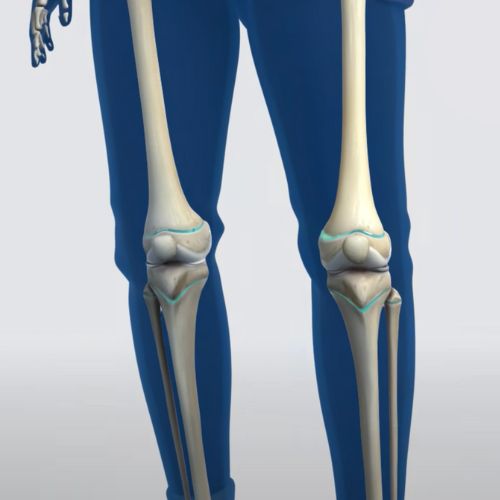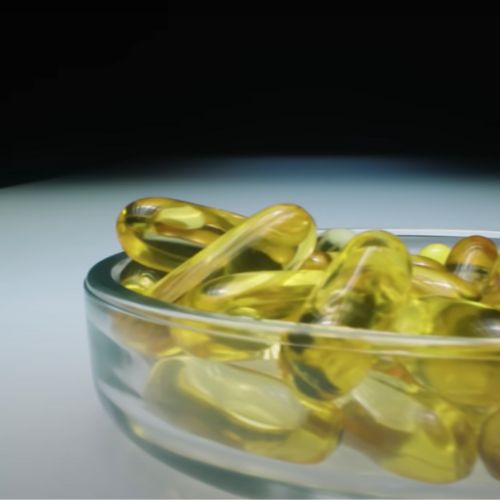Vitamin D, more commonly known as the sunshine vitamin, is a well-known supporter of calcium absorption, bone health, and muscle function, which has a domino effect on several body processes. Since this fat-soluble vitamin can influence some of our core body processes, it's only natural to wonder how we can keep our levels at their peak. Like other vitamins, vitamin D can be sourced through different external methods.
Let's look at that and more below:
Key Findings
The Role of Vitamin D in the Body
Before we get into the best sources to extract vitamin D from, we must know what it is and what it does for us. Like our other vitamin friends, vitamin D comes in more than one form, 2 to be exact: vitamin D2 and D3. Vitamin D2 (ergocalciferol) comes from plant sources, while D3 (cholecalciferol) comes from animals.
Research outlines quite a long list of essential functions vitamin D helps with. As I mentioned in the beginning, the vitamin helps regulate the absorption and utilization of phosphorus, minerals, and calcium which are necessary for strong bones and teeth.

It works with parathyroid hormone to promote bone mineralization (filling the bones with calcium) to prevent conditions like osteoporosis from forming. The vitamin also supports a healthy immune system by enhancing immune cell functionality and promoting their response against infections and inflammation, a vital part of keeping us in peak health.
But that's not all, I also found studies that show the vitamin plays a role in cell growth, neuromuscular function, and gene expression, contributing to the overall functioning of various systems in our bodies. Emerging research suggests a potential link between vitamin D and mental health as well.
In a nutshell, getting a reliable source of vitamin D can come with numerous health benefits. Here are some of the key advantages associated with optimal vitamin D levels:
Best Sources of Vitamin D Explained
Although vitamin D plays a vital role in several body functions, the body cannot make the vitamin on its own and replenish diminishing levels on its own without our help. That's one of the main reasons why looking for the best sources of vitamin D is important.
Let's look at the most reliable sources of vitamin D below:
Sunlight
We established that vitamin D can't be produced by the body on its own. However, it can be synthesized using rays from the sun. Dr. Michael F. Holick, a leading expert in the field of vitamin D research, emphasizes that sensible sun exposure is the most potent source of vitamin D.
When our skin is exposed to the sun's ultraviolet B (UVB) rays, the rays interact with a precursor molecule in the skin called 7-dehydrocholesterol, converting it into vitamin D3. Simply put, the sun's energy turns a chemical in our skin into vitamin D3. It is then carried over to our liver and kidneys to be transformed into active vitamin D, which revs up vitamin D levels.

While this may seem a bit unbelievable, science thoroughly backs the theory of sunlight helping ramp up vitamin D levels.
One study investigating the effectiveness of sun exposure on vitamin D levels encouraged 40 individuals to get some sunshine for 20–30 minutes between 11am and 3pm every day for two months during the summer of 2018.
Vitamin D levels were assessed pre and post-sunshine doses, and the results were great. The evidence showed improved vitamin D levels paired with better mental health reported by patients. This evidence ties up with research that shows a link between decreased sun exposure and the increased probability of cognitive impairment.
Food and Drink
The senior director of Nutrition Education and Training at Herbalife, Susan Bowerman, says an unbalanced diet greatly contributes to vitamin D deficiency. Bowerman names fatty fish, beef liver, cheese, mushrooms, egg yolks, fortified drinks, and foods that have vitamin D added to them (certain kinds of milk, cereals, bread) as a great sources of the vitamin, and science agrees.

I looked at a study that evaluated the amount of vitamin D we can get from these foods/drinks mentioned by Bowerman. The evidence from the study shows that food and drink containing vitamin D can effectively increase circulating vitamin D concentrations with no signs of side effects. The data from the study looked so promising that experts believe it is a possible solution to the vitamin D deficiency pandemic.
Supplements
Vitamin D supplements are a good and reliable source of the vitamin. Considering that excessive exposure to sunlight can possibly increase risks of skin cancer and accessibility to foods high in vitamin D can be an issue for some, vitamin D supplements come in as the perfect 3rd source.
Vitamin D can be sourced from taking a daily multivitamin, or it can be consumed independently from vitamin D supplements. Supplements are typically available in 2 forms:
- pre-vitamin D2 (ergocalciferol) and
- vitamin D3 (cholecalciferol),
and their effect on overall vitamin D levels is equivalent. However, some research has indicated that D3 supplementation may lead to better, more sustained elevation of vitamin D levels in the blood.

A meta-analysis of randomized controlled trials directly compared the effects of vitamin D2 and vitamin D3 supplementation on human vitamin D levels. It was reported that supplementation with vitamin D3 had a significantly positive effect on serum 25(OH)D concentrations compared to vitamin D2.
The conclusion was that vitamin D3 is more effective at raising serum vitamin D concentrations (vitamin D levels), making it the preferred choice for supplementation. Since vitamin D is considered a fat-soluble vitamin, the absorption process of supplements is aided by fat, so taking vitamin D alongside a high-fat meal is helpful.
Final Word
After looking at scientific data and expert opinions, there's no doubt that Vitamin D is a powerhouse vitamin. Its presence helps keep us running at full speed both physically and mentally, and it can work as a preventative measure shielding us from some health risks as well. But keeping levels at their vitamin D levels soaring doesn't happen on its own, as our bodies can't create this vitamin from scratch by itself, it needs help from us.
So, whether you're reaching for some vitamin D because you are showing signs and symptoms of vitamin D deficiency or just want to keep your levels up, you can easily do so using any of the methods mentioned above. Be sure to look at ideal vitamin D dosing to avoid possible side effects and yield successful results.


Thanks for your help today and thanks for sharing your help with the family and blessings